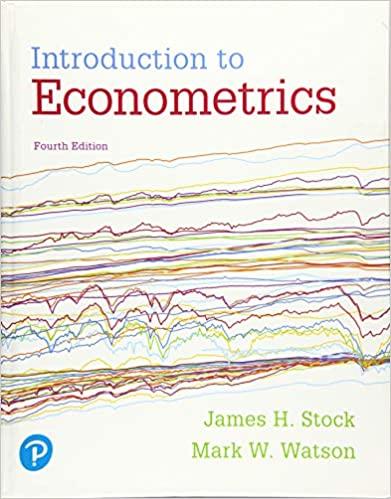Consider the problem of predicting (Y) using another variable, (X), so that the prediction of (Y) is
Question:
Consider the problem of predicting \(Y\) using another variable, \(X\), so that the prediction of \(Y\) is some function of \(X\), say \(g(X)\). Suppose that the quality of the prediction is measured by the squared prediction error made on average over all predictions, that is, by \(E\left\{[Y-g(X)]^{2}\right\}\). This exercise provides a non-calculus proof that of all possible prediction functions \(g\), the best prediction is made by the conditional expectation, \(E(Y \mid X)\).
a. Let \(\hat{Y}=E(Y \mid X)\), and let \(u=Y-\hat{Y}\) denote its prediction error. Show that \(E(u)=0\). Use the law of iterated expectations.
b. Show that \(E(u X)=0\).
c. Let \(\widetilde{Y}=g(X)\) denote a different prediction of \(Y\) using \(X\), and let \(v=Y-\widetilde{Y}\) denote its error. Show that \(E\left[(Y-\widetilde{Y})^{2}\right]>E\left[(Y-\hat{Y})^{2}\right]\). [Hint: Let \(h(X)=g(X)-E(Y \mid X)\), so that \(v=[Y-E(Y \mid X)]-h(X)\). Derive \(E\left(v^{2}\right)\).]
Step by Step Answer:






